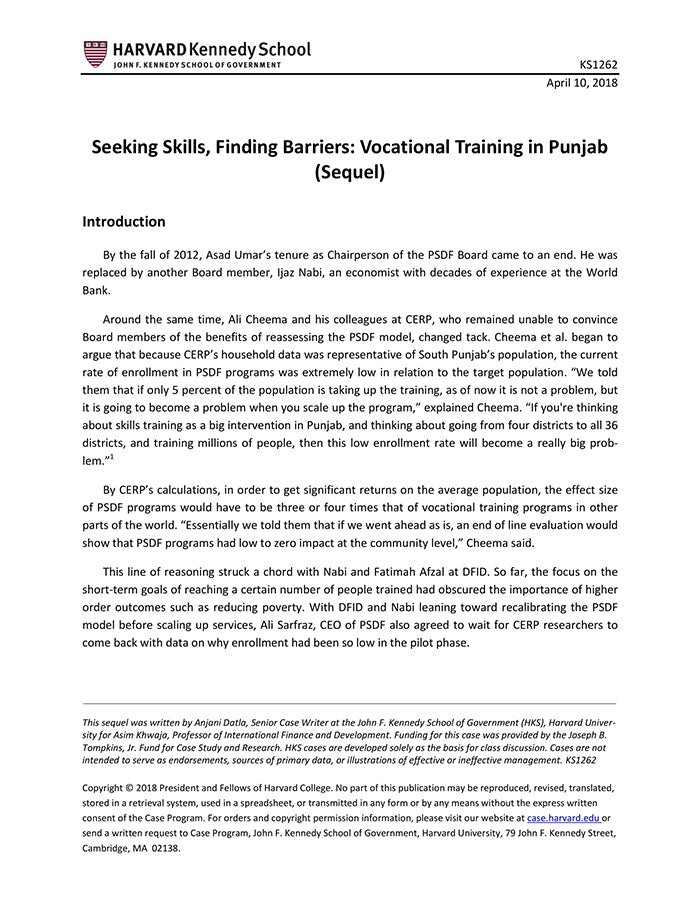Seeking Skills, Finding Barriers: Vocational Training in Punjab (Sequel)
受取状況を読み込めませんでした
Supplement to case KS1261. In March 2012, a flagship vocational program in Punjab, Pakistan-the Punjab Skills Development Fund (PSDF)-hit a roadblock. After months of planning, a pilot phase of training courses was launched in four of Punjab's poorest districts. The classes filled up, but the researchers in charge of evaluating PSDF's programs were worried. Earlier research indicated that a large portion of the target population-including a large number of women-were interested in vocational training. But, when it came time to enroll in the classes only a small fraction of the population showed up. The researchers wanted to find out why, before the program scaled up, but any delays in rolling out the program funded by the United Kingdom's Department for International Development and the Punjab government would not bode well for PSDF. A unique public-private partnership, PSDF hoped to overhaul skills training in Pakistan by using an evidence-based, demand-driven approach. At the core of the model was a close partnership between researchers and practitioners. But embedding rigorous research in a development program did not in and of itself ensure success. Instead, with PSDF, the approach created serious tensions between policymakers and researchers, as administrative demands routinely flew in the face of applying evidence-based program design. Case number 2122.1
【書誌情報】
ページ数:6ページ
サイズ:A4
商品番号:HBSP-KS1262
発行日:2018/4/10
登録日:2018/8/9


